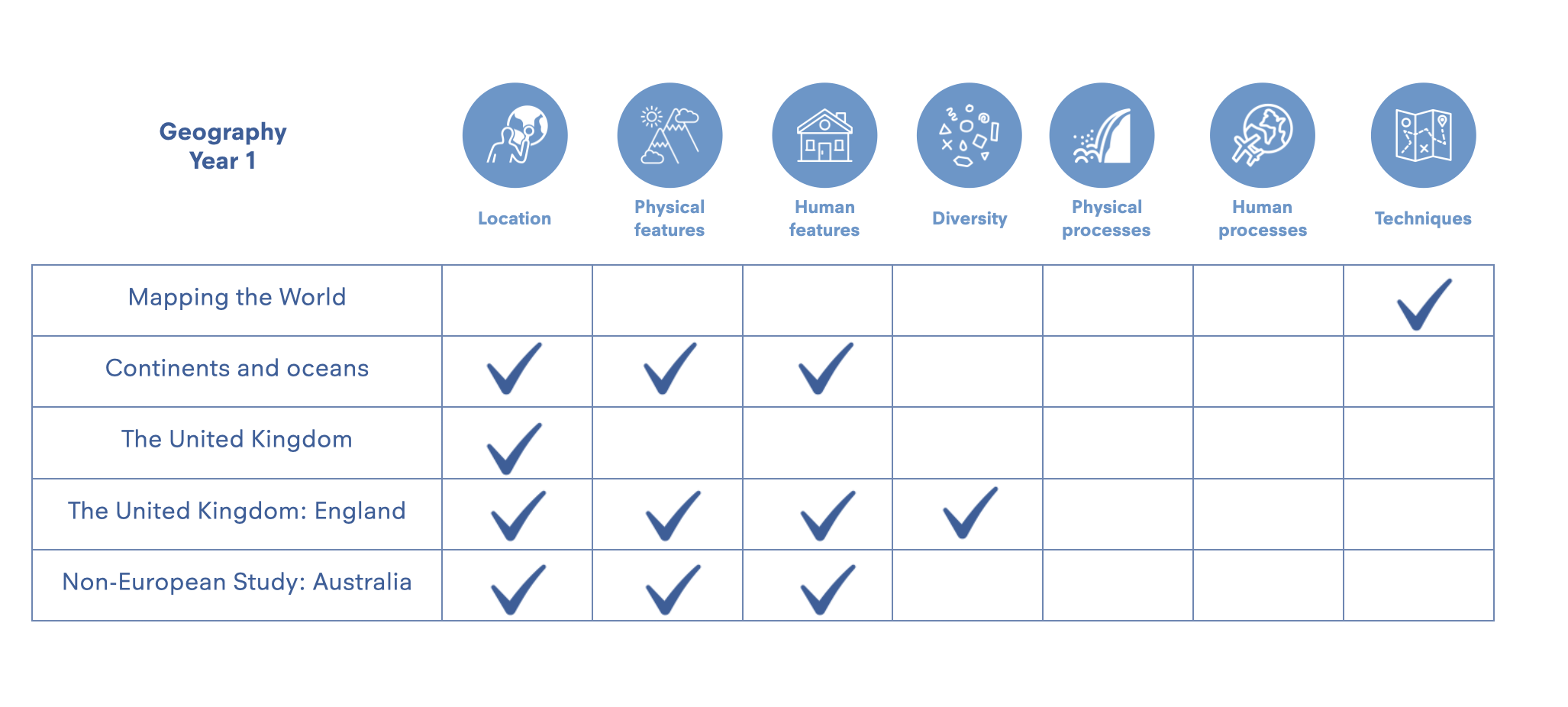
Schema theory states that all knowledge is organised into units. A schema is, therefore, a conceptual system for understanding knowledge. A subject schema is a way of organising knowledge in a meaningful way; it is an appreciation of how facts are connected to which they are connected. A schema is distinct from information, isolated facts with no organisational basis or links.
Knowledge Categories, as used in our Curriculum Companions, form the basis of a subject's schema, against which topics can be mapped. Here is an example of a geography schema with topics mapped against it:

Mapping in such a way helps teachers to build a schema in students' long-term memories by relating topics to prior knowledge in an organised, systematic way. This also has the benefit of reactivating prior knowledge, which helps students to remember knowledge more efficiently. Click here for a free download of schema mapping templates for History and Geography.
References with key findings
Jean Piaget (1896-1980) – First to create a cognitive development theory which included schemas.
David Rumelhart (1975) – Posited that stories have an underlying grammar and that experience with this grammar would help understand new stories.
Roger Schank and Abelson (1977) – Stated that humans develop a grammar for procedural knowledge in the form of a script for all standard events in our lives.
Brewer and Treyens (1981) Carried out an experiment where subjects were asked to wait in an office for 30 seconds. When removed and asked what they saw in the office, many reported seeing things that were not present, such as books. The presumption is that most people's schemas of "office" include books
Alba and Hasher (1983) Suggested four ways schema might affect memory:
- Guide attention to relevant information
-
Allow encounters to be stored as meaning without details
-
Assist in interpreting new information by providing relevant prior knowledge
-
Provide the means to integrate the previous three steps into a single memory and provide the framework for reconstructing that memory when required.

.png)




